-
 Bitcoin
Bitcoin $115200
0.74% -
 Ethereum
Ethereum $3730
6.71% -
 XRP
XRP $3.075
4.85% -
 Tether USDt
Tether USDt $1.000
0.01% -
 BNB
BNB $766.1
1.85% -
 Solana
Solana $168.7
4.22% -
 USDC
USDC $0.9999
0.00% -
 Dogecoin
Dogecoin $0.2097
5.42% -
 TRON
TRON $0.3327
1.72% -
 Cardano
Cardano $0.7547
4.04% -
 Stellar
Stellar $0.4156
4.83% -
 Hyperliquid
Hyperliquid $38.77
1.37% -
 Sui
Sui $3.589
4.15% -
 Chainlink
Chainlink $17.09
4.86% -
 Bitcoin Cash
Bitcoin Cash $574.6
5.82% -
 Hedera
Hedera $0.2523
1.95% -
 Avalanche
Avalanche $23.01
7.68% -
 Ethena USDe
Ethena USDe $1.001
-0.02% -
 Litecoin
Litecoin $120.4
9.83% -
 Toncoin
Toncoin $3.426
-4.06% -
 UNUS SED LEO
UNUS SED LEO $8.918
-0.53% -
 Shiba Inu
Shiba Inu $0.00001250
2.49% -
 Uniswap
Uniswap $9.956
8.52% -
 Polkadot
Polkadot $3.724
3.26% -
 Monero
Monero $304.7
0.19% -
 Dai
Dai $0.9999
-0.01% -
 Bitget Token
Bitget Token $4.394
1.48% -
 Cronos
Cronos $0.1400
6.96% -
 Pepe
Pepe $0.00001076
2.83% -
 Aave
Aave $268.4
3.45%
How does NFT Cultural Impact change the art and entertainment industry?
NFTs disrupt traditional art and entertainment, offering artists direct-to-consumer sales and enhanced fan engagement, but concerns remain about environmental impact and market volatility.
Mar 01, 2025 at 11:19 am
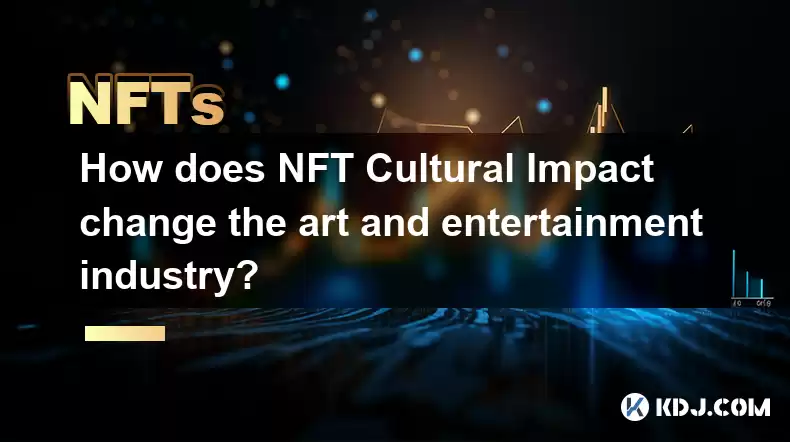
Key Points:
- NFTs have disrupted traditional art markets by offering new avenues for artists to connect with collectors and monetize their work.
- The entertainment industry leverages NFTs for unique fan engagement, unlocking exclusive content and experiences.
- The decentralized nature of NFTs challenges established power structures and promotes artist ownership.
- Concerns remain about environmental impact, market volatility, and the potential for scams.
- The long-term impact of NFTs on art and entertainment remains to be seen.
How Does NFT Cultural Impact Change the Art and Entertainment Industry?
The rise of Non-Fungible Tokens (NFTs) has significantly impacted the art and entertainment industries, challenging traditional models and introducing new possibilities. The ability to create verifiable digital scarcity has revolutionized how art is created, distributed, and valued. This has led to both opportunities and challenges for artists, collectors, and businesses alike.
NFTs and the Art World:
The traditional art market, characterized by galleries, auction houses, and intermediaries, has been disrupted by the decentralized nature of NFTs. Artists can now directly sell their digital artwork to collectors worldwide, bypassing traditional gatekeepers and retaining a larger share of the profits. This has empowered many artists, particularly those previously excluded from traditional art spaces. Furthermore, NFTs have created new markets for digital art, expanding the definition of what constitutes "art" itself.
NFTs and the Entertainment Industry:
The entertainment industry has also embraced NFTs, using them to enhance fan engagement and create new revenue streams. Music artists, for example, can release limited-edition NFTs that grant access to exclusive content, such as behind-the-scenes footage, early access to new music, or virtual meet-and-greets. This fosters a more direct relationship between artists and their fans, building stronger communities. Film studios and gaming companies are also exploring NFTs for in-game items, collectibles, and unique experiences.
The Decentralized Nature of NFTs:
One of the most significant cultural impacts of NFTs is their decentralized nature. This challenges the centralized control exerted by traditional institutions in the art and entertainment industries. By leveraging blockchain technology, NFTs provide artists with greater control over their work and intellectual property. This shift towards artist ownership has far-reaching implications for creative freedom and fair compensation.
Challenges and Concerns:
Despite the significant opportunities, several challenges remain. The environmental impact of creating and trading NFTs on energy-intensive blockchains is a major concern. The volatility of the NFT market also presents risks for both artists and collectors. Furthermore, the rise of NFT scams and fraudulent projects highlights the need for greater regulation and consumer protection.
Specific Applications Across Industries:
- Digital Art: Artists can mint and sell unique digital pieces, establishing provenance and authenticity. Collectors can acquire these assets and potentially see their value appreciate.
- Music: Musicians can offer exclusive content, virtual concerts, or limited-edition album art as NFTs, enhancing fan engagement and generating revenue.
- Gaming: In-game items, characters, and virtual land can be represented as NFTs, providing players with ownership and the ability to trade assets.
- Collectibles: NFTs are used to create and trade digital collectibles, ranging from virtual trading cards to unique digital artwork, creating new markets for enthusiasts.
- Film and Television: Studios can release exclusive clips, behind-the-scenes footage, or even NFTs representing ownership of scenes or characters.
The Future of NFTs:
The long-term impact of NFTs on the art and entertainment industries is still unfolding. Technological advancements, regulatory changes, and evolving consumer preferences will all play a role in shaping the future of this rapidly evolving space. While challenges remain, the potential for NFTs to transform creative industries is undeniable.
Common Questions and Answers:
Q: What are the environmental concerns surrounding NFTs?
A: Many NFT platforms rely on energy-intensive blockchain networks like Ethereum, leading to high carbon emissions. However, newer platforms are emerging that use more sustainable technologies to minimize their environmental impact.
Q: Are NFTs a good investment?
A: The NFT market is highly volatile, and the value of NFTs can fluctuate significantly. Investing in NFTs carries considerable risk, and it's crucial to do thorough research before investing any funds.
Q: How can I avoid NFT scams?
A: Be wary of promises of unrealistic returns. Verify the authenticity of projects and creators before investing. Only use reputable NFT marketplaces and wallets.
Q: How do NFTs differ from traditional digital art?
A: NFTs provide verifiable proof of ownership and authenticity through blockchain technology, whereas traditional digital art lacks this inherent verification. This allows for scarcity and provenance.
Q: What are the legal implications of owning an NFT?
A: The legal landscape surrounding NFTs is still evolving. Owning an NFT generally grants you ownership of the digital asset itself, but the rights to use and reproduce the underlying artwork may be subject to the terms set by the creator.
Q: How do NFTs impact artist livelihoods?
A: NFTs can provide artists with new revenue streams and greater control over their work, potentially improving their livelihoods. However, the volatility of the market and the potential for scams pose risks.
Q: Can NFTs be used for ticketing and access control?
A: Yes, NFTs can be used to create unique, non-transferable tickets for events, providing secure access control and preventing counterfeiting.
Q: How are NFTs changing the way fans interact with artists?
A: NFTs allow for more direct and personalized fan engagement, offering exclusive content, experiences, and opportunities to interact directly with artists. This fosters stronger communities and more meaningful connections.
Disclaimer:info@kdj.com
The information provided is not trading advice. kdj.com does not assume any responsibility for any investments made based on the information provided in this article. Cryptocurrencies are highly volatile and it is highly recommended that you invest with caution after thorough research!
If you believe that the content used on this website infringes your copyright, please contact us immediately (info@kdj.com) and we will delete it promptly.
- Cryptocurrency, Altcoins, and Profit Potential: Navigating the Wild West
- 2025-08-04 14:50:11
- Blue Gold & Crypto: Investing Disruption in Precious Metals
- 2025-08-04 14:30:11
- Japan, Metaplanet, and Bitcoin Acquisition: A New Era of Corporate Treasury?
- 2025-08-04 14:30:11
- Coinbase's Buy Rating & Bitcoin's Bold Future: A Canaccord Genuity Perspective
- 2025-08-04 14:50:11
- Coinbase's Buy Rating Maintained by Rosenblatt Securities: A Deep Dive
- 2025-08-04 14:55:11
- Cryptos, Strategic Choices, High Returns: Navigating the Meme Coin Mania
- 2025-08-04 14:55:11
Related knowledge
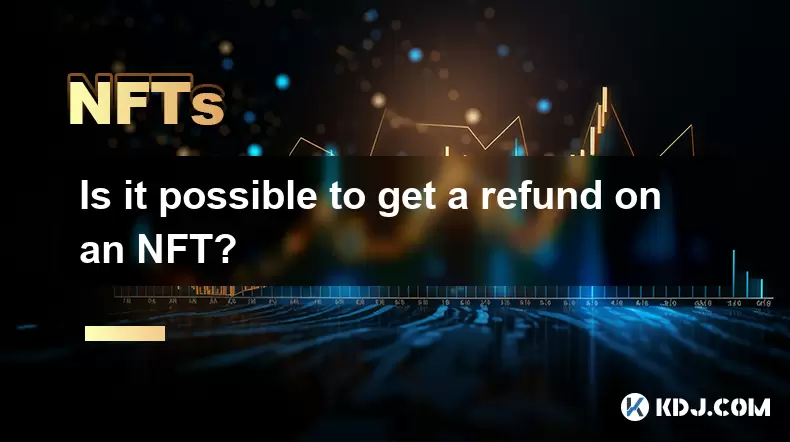
Is it possible to get a refund on an NFT?
Jul 21,2025 at 08:35pm
Understanding NFT Transactions and RefundsWhen you purchase an NFT (Non-Fungible Token), the transaction is typically recorded on a blockchain, making...
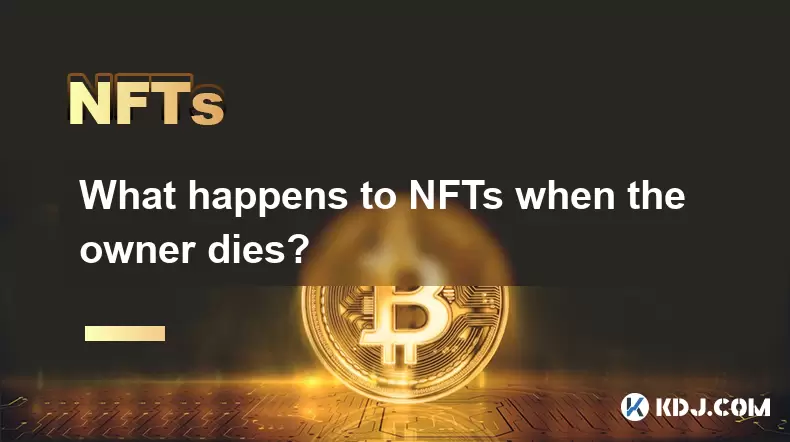
What happens to NFTs when the owner dies?
Jul 22,2025 at 02:43pm
Legal Ownership and Digital AssetsWhen an individual owns NFTs, the question of what happens to these assets upon their death is a pressing one. NFTs ...
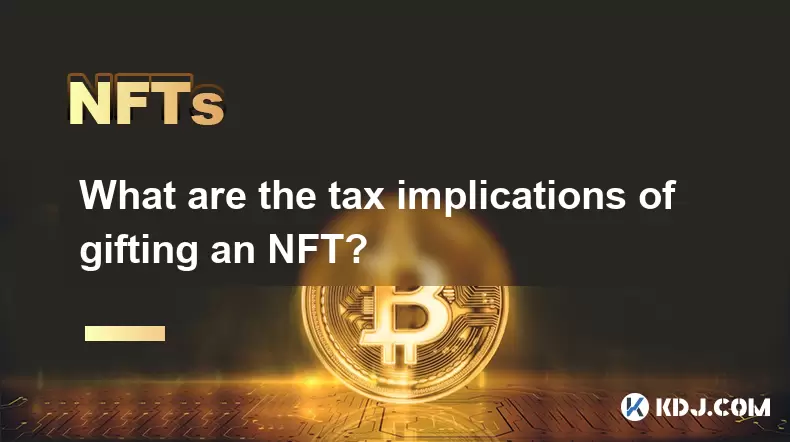
What are the tax implications of gifting an NFT?
Jul 19,2025 at 04:21am
Understanding the Basics of NFT GiftingGifting a Non-Fungible Token (NFT) involves transferring ownership from one individual to another without recei...
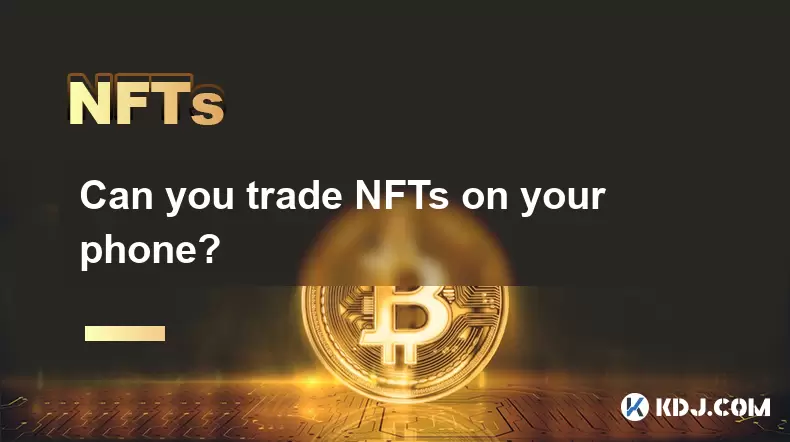
Can you trade NFTs on your phone?
Jul 18,2025 at 04:29am
Trading NFTs on Mobile DevicesYes, you can trade NFTs on your phone, and the process has become increasingly streamlined thanks to a variety of mobile...
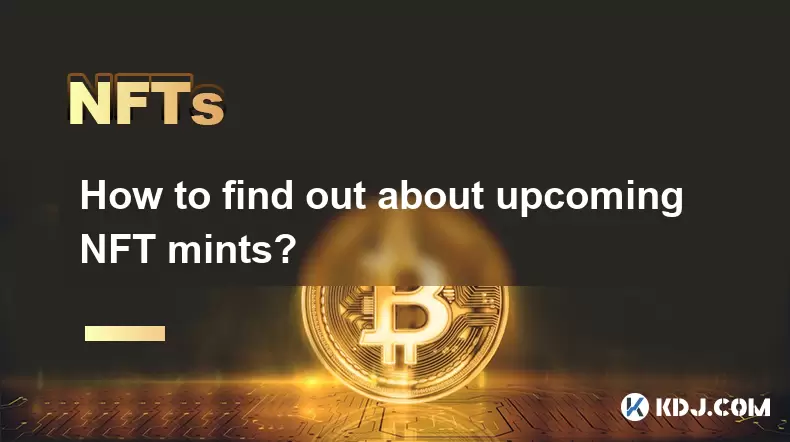
How to find out about upcoming NFT mints?
Jul 18,2025 at 11:50am
Exploring NFT Minting OpportunitiesUnderstanding the landscape of upcoming NFT mints is crucial for collectors, investors, and creators who wish to st...
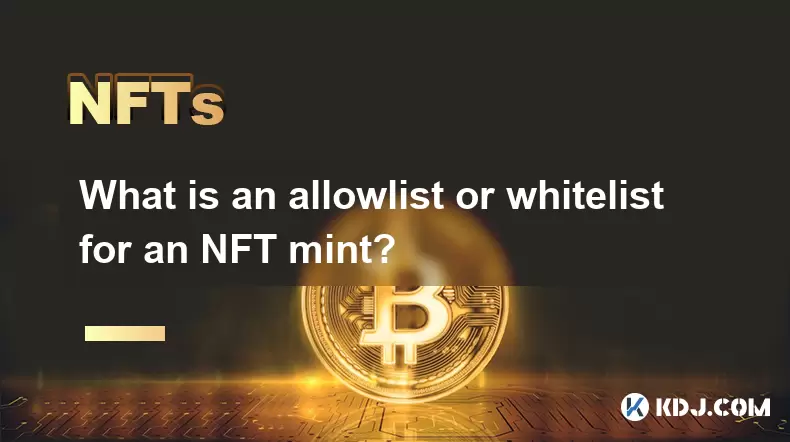
What is an allowlist or whitelist for an NFT mint?
Jul 20,2025 at 07:14pm
Understanding the Concept of an Allowlist for NFT MintingAn allowlist, also commonly referred to as a whitelist, is a mechanism used in the NFT mintin...

Is it possible to get a refund on an NFT?
Jul 21,2025 at 08:35pm
Understanding NFT Transactions and RefundsWhen you purchase an NFT (Non-Fungible Token), the transaction is typically recorded on a blockchain, making...

What happens to NFTs when the owner dies?
Jul 22,2025 at 02:43pm
Legal Ownership and Digital AssetsWhen an individual owns NFTs, the question of what happens to these assets upon their death is a pressing one. NFTs ...

What are the tax implications of gifting an NFT?
Jul 19,2025 at 04:21am
Understanding the Basics of NFT GiftingGifting a Non-Fungible Token (NFT) involves transferring ownership from one individual to another without recei...

Can you trade NFTs on your phone?
Jul 18,2025 at 04:29am
Trading NFTs on Mobile DevicesYes, you can trade NFTs on your phone, and the process has become increasingly streamlined thanks to a variety of mobile...

How to find out about upcoming NFT mints?
Jul 18,2025 at 11:50am
Exploring NFT Minting OpportunitiesUnderstanding the landscape of upcoming NFT mints is crucial for collectors, investors, and creators who wish to st...

What is an allowlist or whitelist for an NFT mint?
Jul 20,2025 at 07:14pm
Understanding the Concept of an Allowlist for NFT MintingAn allowlist, also commonly referred to as a whitelist, is a mechanism used in the NFT mintin...
See all articles

























































































